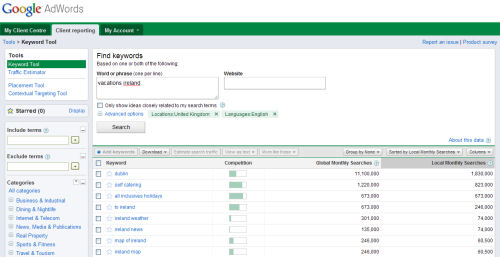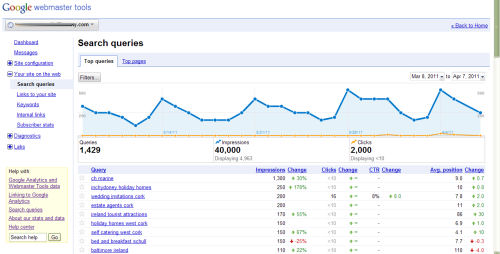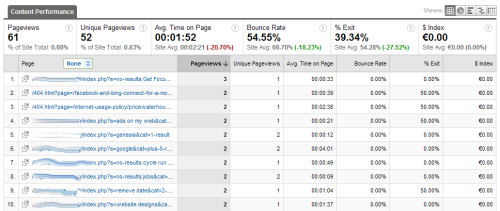Even if search engine optimization is not part of your job description, you still need to come up with topics for content that is relevant to the web users you are trying to reach. Whether you are looking to write pages of content for your website, quick posts for Twitter or an interesting nugget for an email newsletter; sometimes it’s a challenge to come up with a regular source of ideas for content that will entice readers and help your search engine rankings. Here are six tools that are free, easy to use and access. All you have to do is log into your Google account.
1. Google Alerts
(http://www.google.com/alerts)

Sign up for Google Alerts and receive notification by email whenever new content comes online with any of your selected keyphrases. Here you will often find great articles that you can recommend to your connections on social media channels. Even better, you may find some ‘not so great’ articles on topics that you can probably cover better.
You will also get a good idea of what people are ‘talking about’ online and with this information you can come up with related topics for articles on your website, as well as other types of content for your online marketing campaigns.
While you are at it, don’t forget to include an alert for your own name, business name and competitors so you can keep an eye on what’s being said about you and your industry.
2) Google Reader
(http://www.google.com/reader)

Subscribe to the RSS feeds of websites that provide good information related to your business. Similar to Google Alerts, you will find a wide range of articles that can inspire you for your online marketing channels. The range and quality of the articles depend on the feeds you subscribe to. You can also see what articles your Google connections recommend.
Many Google Reader ‘users’ find that they never get around to reading the feeds that they subscribe to. I find it a great way to catch up on my reading when I am waiting in line at the grocery store. Don’t leave home without the smartphone!
I probably don’t have to remind you that you shouldn’t just copy the content you find and pass it off as your own, but there are completely legitimate uses for this content:
- Post links to the articles that your social media connections will find interesting and relevant.
- Write an article with your take on the item: why you find it so interesting, how it specifically relates to your region or specific industry, etc.
- Write your own completely fresh article on the topic.
- Post an item compiling a number of related articles you’ve found.
- You may also find some great sites related to your own that you can submit articles to and perhaps get a valuable link to your website.
Writing original content is the best way to add value to your own site and get better search results, but a combination of these methods will work perfectly across all of your online marketing channels.
3) Google Suggest

‘Power’ Google users probably don’t look at Google Suggest-ions, but these phrases are great if you need a really quick and easy way to see what information people are looking for. Yes, some in the industry have worked out ways to influence these suggestions, but for the most part this is still a good tool to get ideas for articles.
4) Google AdWords Keyword Tool
(http://adwords.google.com/select/KeywordToolExternal)

Many, maybe most, SEOs rely on the Google AdWords Keyword Tool to research what phrases people are searching on related to our clients’ businesses. It’s more helpful than many other online keyword research tools because you can see results by country if needed.
You don’t need a Google AdWords account to use this tool, but you will get more results if you do. It’s easy to sign up for an account and you don’t actually have to run any AdWords campaigns to do so.
5) Google Webmaster Tools
(http://www.google.com/webmasters/tools/)

Google Webmaster Tools is a treasure trove of information on your website; from lists of phrases people searched on to reach your website to suggestions for better meta tags and how to improve the download speed of your pages. Here you will see the phrases that you may get some hits from, but could probably do a lot better if you provided better or more related content.
6) Google Analytics
(http://www.google.com/analytics)

Most sites are using Google Analytics for their website statistics, but not all users know that you can set it up to track “Site Search”. Once this is set up you can see what visitors searched on, if your site provided a result and often what the user searched for on an external site to get to your website. This is valuable information on what your visitors are looking for, so important to ensure that you are providing content on this topic. Also review the search phrases used and see which you could get better results for if more content was provided.
You are probably already using at least a few of these tools provided by Google, but perhaps not specifically to get ideas on your web content. They are all free, easy and accessible; so now you have NO excuse to not include interesting, relevant content across all your online marketing channels.




